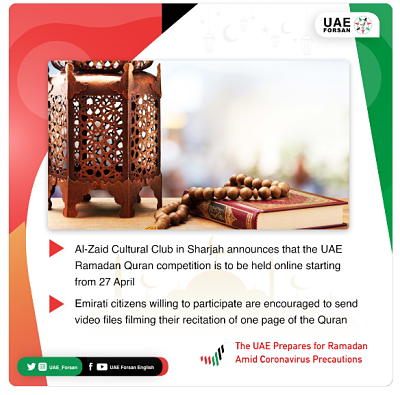Is COVID-19 taking Ramadan 2020 Online?
Ramadan 2020 has arrived!
Although Muslims the world over are celebrating its arrival, the fact that it has arrived against a backdrop of COVID-19 makes it rather unique.
With the virus, quite simply, shaking up cultural practices and customs the world over, there has never been a more challenging time for Ramadan celebrations to take place.
As a religious practice with the community at its core, Ramadan celebrations have, quite simply, been turned upside down.
Before we look at what COVID means for Ramadan 2020, let’s first take a nutshell look at what Ramadan is for readers who may not be familiar with this core Islamic celebration (for a comprehensive understanding of Ramadan, click here).
What is Ramadan?
As one of the five pillars of Islam, Ramadan requires able bodied Muslims to fast for an entire month.
It isn’t the average kind of religious fast which might only demand believers give up a certain food for a month or to go without food only, the Islamic fast is far more hardcore!
During the month of Ramadan, Muslims are required to abstain from food and drink from sunrise to sundown. For Muslims living in the UK, this means that the fast starts at approximately 03:00 am and finishes at 21:00 pm.
In the summer, where even a sip of water is forbidden, or a cigarette for those who smoke, this is a very long day.
Ramadan is especially important to Muslims as it’s believed to be the time at which the Quran was revealed to the Prophet Muhammad.
This belief makes Quranic recitations an important part of Ramadan traditions. Every night, once the fast has been completed and the last of the five daily prayers have been read, Muslim communities come together to read Tarawih prayers. Tarawih prayers are typically read in congregation at the mosque. Believers complete between 14 and 20 prayer cycles, with a section of the Quran being read at each cycle. Tarawih can take anywhere from half an hour to an hour.
Community is at the heart of Ramadan. Families typically eat their pre-dawn Sahur meals together, Muslims strive to pray their obligatory and Tarawih prayers at the mosque and communities tend to come together to eat their Iftar meal together once the fast comes to an end.
Events such as ‘Open Iftaar’ are an important opportunity for Muslims to come together, renew relationships and make new friends. Where people are unable to attend large gatherings, they are likely, instead, to mark iftar with extended family members, friends or neighbours.
An Online Corona Virus Ramadan?
So how does COVID-19 affect the cultural traditions of this important religious celebration?
- With Mosques on lockdown, there’s no opportunity for Muslims to gather for communal prayers.
- Iftar won’t be celebrated with the traditional community spirit of togetherness and support and, unless part of the same household, families won’t be coming together for Sahur.
- Finally, the much-anticipated Eid al Fitr celebrations, which mark the end of Ramadan with parties and large events, are also unlikely to happen.
Instead, Ramadan is coming online and organisations, the world over, have been busy preparing online alternatives to facilitate traditional religious and cultural customs.
Mosques will be livestreaming their services for believers to follow from the socially safe distance of their own homes and ‘Open Itar’ is going digital.
For many families, Zoom, a web platform previously unknown outside of a business setting, is set to host family iftars; allowing people to eat virtually with family members whilst also drawing on their support and encouragement during this demanding month long fast.
Even events such as the al Zaid Cultural Club traditional Quranic competition which centres around public recitation are being moved online.

Without doubt, Ramadan 2020 will be an occasion to remember!
Although it will become an occasion to remember for both its challenges, but also perhaps it may also become the occasion in which Muslims demonstrated that community is not only a physical construct.
By accepting you will be accessing a service provided by a third-party external to https://www.commisceo-global.com./

 +44 0330 027 0207 or +1 (818) 532-6908
+44 0330 027 0207 or +1 (818) 532-6908
